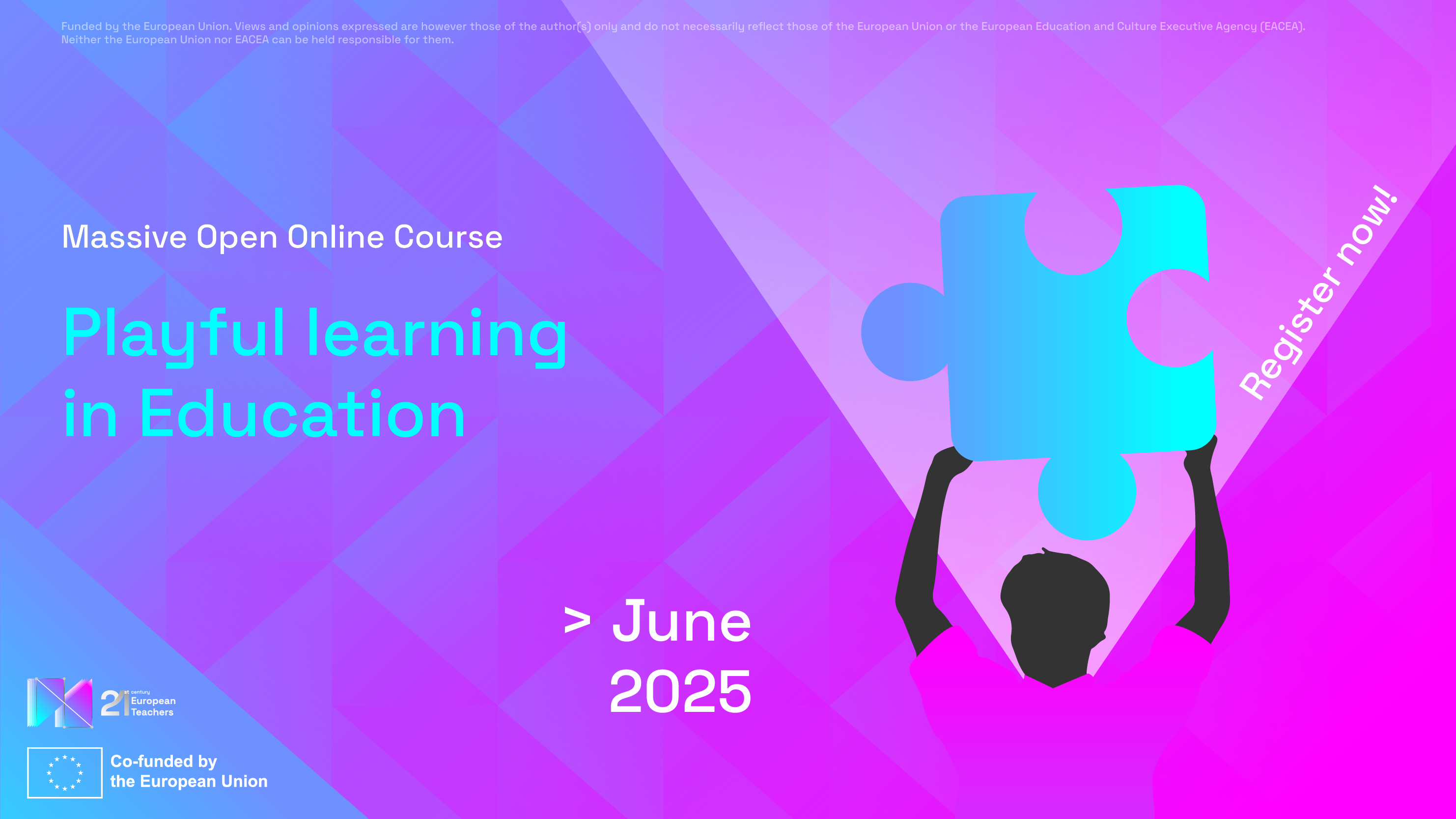This website use cookies to ensure you get the best experience on our website

Welcome to the 21st century European Teacher MOOC!
We’re thrilled to introduce the Playful Learning in Education course! This MOOC is crafted to help you bring creativity and play into your teaching, fostering an engaging learning environment that encourages students to explore, create, and learn in exciting new ways.
MOOC starts in....
* In order to enrol after clicking the link participants need to either create a new account or enrol via their Google account. The language of the landing page can be changed to English by the participant.
Overview
Part of the 21st Century European Teachers project, funded by the EU, this free, self-paced MOOC invites in-service and pre-service teachers, teacher educators, and anyone passionate about playful learning to explore how fun, creativity, and engagement can be integrated into education.
This fully online course allows you to complete it at your own pace, with no scheduled meetings or teacher-led guidance. Instead, it empowers you to explore key concepts and practical applications of playful learning on your own time, wherever and whenever suits you best.
Starting Date: 1st June 2025
End Date: 1st June 2026 (subject to change)
Estimated Effort: 1 ECTS = 28 hours of studying (pass/fail grading, certificate available upon completion)
In this MOOC, you'll learn about playful learning and its role in education. The course will guide you through key topics, including the co-creation model, and offer practical tools to start incorporating playful learning strategies into your lessons.
Sections Include:
-
How to Get Started
Introduction to Playful Learning in Education
-
Playful Learning & Education
-
The Co-Creation Model & Playful Learning in Practice
-
Conclusion & Application for a Certificate
Learning objectives:
- Define playful learning in the context of education
Recognise key concepts of playful learning in education
-
Identify the role of playful learning in educational settings
-
Explain the application of the co-creation model and its benefits to your work
-
Develop lesson plans that incorporate playful learning and the co-creation model

Funded by the European Union. Views and opinions expressed are however those of the author(s) only and do not necessarily reflect those of the European Union or the European Education and Culture Executive Agency (EACEA). Neither the European Union nor EACEA can be held responsible for them.